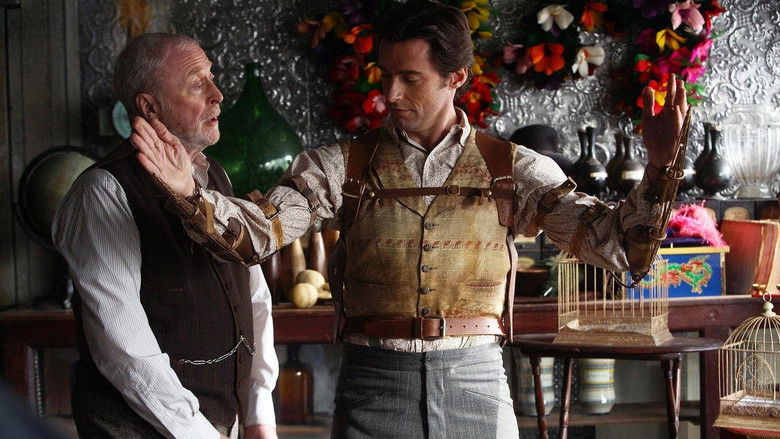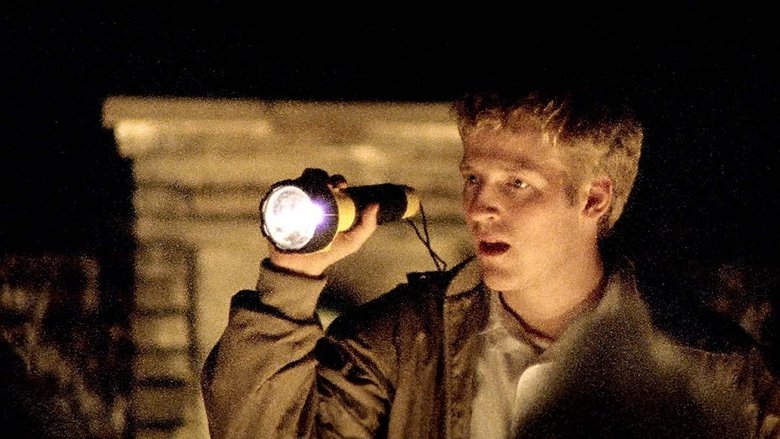Movies that will twist your brain: Essential mind-bending films
Prepare for a cinematic journey that will challenge your perception of reality. These films are crafted to surprise, confuse, and ultimately, make you question everything you thought you knew.



The 'mindfuck' movie genre isn't just about a twist ending; it's about constructing narratives that deliberately disorient the viewer, playing with perception, memory, and the very nature of reality. These films often employ unreliable narrators, non-linear timelines, or delve deep into psychological states, blurring the lines between dream and reality, truth and illusion.
What makes these movies so compelling is their rewatchability. A second or third viewing often reveals subtle clues, hidden meanings, or alternative interpretations you missed the first time around. They demand active engagement from the audience, turning passive watching into an intellectual puzzle.
Directors like Christopher Nolan, David Lynch, and Darren Aronofsky have become synonymous with this style, pushing the boundaries of conventional storytelling. The late 90s and early 2000s, in particular, saw a surge in popularity for these complex narratives, proving that audiences crave films that don't just entertain but also provoke thought and discussion long after the credits roll. Getting lost in the labyrinthine plots and ambiguous endings is part of the thrill.
14. The Butterfly Effect (2004)
The Butterfly Effect explores the chaotic nature of time travel and the unintended consequences of altering the past. Ashton Kutcher stars as Evan Treborn, who discovers he can travel back in time to specific moments in his childhood by reading his old journals. However, each attempt to fix past mistakes results in drastically different, often worse, present realities for himself and his friends. The film presents a stark look at the idea that changing even small details in the past can have unforeseen and devastating ripple effects, highlighting the complex and often tragic interplay between fate and free will. It's a compelling, if dark, exploration of the 'what if' inherent in time manipulation.

13. Oldboy (2003)
Park Chan-wook's Oldboy is a brutal, stylish, and emotionally devastating revenge thriller from South Korea. Part of his 'Vengeance Trilogy,' the film follows Oh Dae-su, who is inexplicably imprisoned in a hotel room for 15 years. When he is suddenly released, he is given five days to find his captor and discover the reason for his imprisonment. What follows is a violent, unpredictable journey filled with iconic action sequences (like the single-take hallway fight) and shocking twists. The film delves into themes of revenge, consequences, and the darkest aspects of human nature, leading to a conclusion that is both tragic and utterly unforgettable.

12. The Machinist (2004)
The Machinist is perhaps best known for Christian Bale's shocking physical transformation – he lost over 60 pounds for the role of Trevor Reznik, a factory worker suffering from chronic insomnia. Trevor's inability to sleep has led to severe paranoia, hallucinations, and a terrifying deterioration of his physical and mental health. The film uses a stark, desaturated color palette and unsettling imagery to reflect Trevor's fractured state. As he tries to uncover the cause of his torment, the line between reality and nightmare becomes increasingly blurred. It's a grim, unsettling psychological mystery driven by Bale's committed performance.

11. Black Swan (2010)
Darren Aronofsky's Black Swan is a psychological thriller set in the demanding world of professional ballet. Natalie Portman gives an Oscar-winning performance as Nina, a dedicated dancer struggling to embody the dual roles of the innocent White Swan and the sensual Black Swan in a production of Swan Lake. As the pressure mounts and competition intensifies, Nina's grip on reality begins to slip, leading to terrifying hallucinations and a descent into madness. The film masterfully blends psychological horror with the physical and emotional toll of artistic perfectionism. It's an intense, visceral experience that explores themes of identity, obsession, and the dark side of creative ambition.

10. Donnie Darko (2001)
Donnie Darko is a cult classic that blends science fiction, psychological drama, and coming-of-age themes. Jake Gyllenhaal stars as Donnie, a troubled teenager who sees visions of a large rabbit named Frank, who tells him the world will end in 28 days, 6 hours, 42 minutes, and 12 seconds. This event sets off a chain reaction of bizarre occurrences and philosophical ponderings about time travel, fate, and existence. The film's atmospheric soundtrack, unsettling imagery, and ambiguous narrative invite multiple interpretations. It's a moody, thought-provoking film that captures the angst of adolescence against a backdrop of cosmic mystery.

9. The Matrix (1999)
The Matrix fundamentally changed science fiction cinema. The Wachowskis' groundbreaking film introduces us to Neo (Keanu Reeves), a computer programmer who discovers that the reality he knows is a simulated world created by intelligent machines, and humanity is enslaved. The film is a thrilling blend of cyberpunk aesthetics, martial arts action, and deep philosophical questions about reality, consciousness, and free will. Its visual effects, particularly the iconic 'bullet time,' were revolutionary. Beyond the action, it's a story about questioning authority, finding your true potential, and the nature of existence itself. A true benchmark in speculative fiction.

8. Fight Club (1999)
Fight Club is a blistering, satirical take on consumerism, masculinity, and alienation. Directed by David Fincher and based on Chuck Palahniuk's novel, the film follows an unnamed Narrator (Edward Norton) who is disillusioned with his mundane life. He forms an underground fight club with the enigmatic Tyler Durden (Brad Pitt), which evolves into something far more chaotic and dangerous. The film's style is kinetic and provocative, challenging societal norms and expectations. It's filled with dark humor, shocking twists, and a critical look at modern life that remains relevant today. The ending is particularly notorious for pulling the rug out from under the viewer.

7. The Prestige (2006)
Christopher Nolan's The Prestige is a captivating tale of rivalry between two stage magicians in late 19th-century London. Hugh Jackman and Christian Bale play the competing illusionists whose obsession with outdoing each other leads them down increasingly dangerous and morally ambiguous paths. The film's structure, much like a magic trick itself, involves misdirection, narrative jumps, and reveals that keep the audience guessing. It explores themes of sacrifice, obsession, and the lengths people will go to for their art and revenge. The period detail is exquisite, and the performances are intense, making for a compelling story about the dark side of genius and competition.

6. Shutter Island (2010)
Martin Scorsese delves into psychological horror with Shutter Island. Set in 1954, the film follows U.S. Marshal Teddy Daniels (Leonardo DiCaprio) and his partner (Mark Ruffalo) as they investigate the disappearance of a patient from a remote asylum for the criminally insane. The isolated, storm-battered island setting creates an intense, claustrophobic atmosphere. As Teddy searches for clues, he begins to doubt everything: his own sanity, his partner, and the true nature of the asylum. The film is rich with unsettling imagery, red herrings, and a growing sense of dread that builds towards a shocking and ambiguous conclusion. It's a masterclass in suspense and psychological manipulation.

5. Inception (2010)
Inception, another Nolan masterpiece, takes the concept of dreams and turns it into a high-stakes heist film. Leonardo DiCaprio stars as Dom Cobb, an extractor who steals information by infiltrating people's subconscious minds. His latest mission is inception: planting an idea rather than stealing one. The film is visually stunning, creating intricate and often collapsing dream worlds with incredible special effects. The concept of navigating multiple layers of dreams, each with its own rules and risks, provides a complex and thrilling narrative. It's a film packed with action, philosophical ideas about reality and perception, and a famous ending that continues to spark debate among viewers.

4. Memento (2000)
Christopher Nolan burst onto the scene with Memento, a film that immediately showcased his knack for non-linear storytelling. The movie follows Leonard, a man with anterograde amnesia (unable to form new memories), as he tries to track down his wife's killer. To help himself, he relies on notes, tattoos, and polaroid photos. The genius of the film lies in its structure: the main narrative unfolds backward in time, mirroring Leonard's fractured perception of reality. This forces the audience to experience his confusion and desperation firsthand. It's a gripping psychological thriller that keeps you piecing together the mystery alongside its protagonist, constantly questioning what is real and who can be trusted.

3. Eternal Sunshine of the Spotless Mind (2004)
Eternal Sunshine of the Spotless Mind is a truly unique blend of sci-fi concept and raw emotional honesty. Directed by Michel Gondry and written by Charlie Kaufman, this film explores the painful process of erasing difficult relationship memories. Jim Carrey and Kate Winslet deliver career-defining performances as Joel and Clementine, whose love story unfolds and unravels in a non-linear, mind-bending journey through their own minds. The visual effects, often practical and inventive, brilliantly depict the disintegration of memories. It's a poignant, funny, and deeply imaginative look at love, loss, and the messy, essential nature of our past experiences. The concept is wild, but the emotional core is incredibly human and relatable.

2. Mulholland Drive (2001)
David Lynch's Mulholland Drive is less a linear story and more a descent into a dreamlike, surreal Hollywood nightmare. What starts as a seemingly straightforward narrative about an aspiring actress and an amnesiac woman quickly dissolves into a labyrinth of shifting identities, bizarre characters, and unsettling imagery. Originally conceived as a television pilot, its transition to a feature film arguably enhanced its fractured, enigmatic quality. The film is renowned for its stunning visuals, unsettling atmosphere, and a central mystery that has spawned countless interpretations and debates among film enthusiasts. It's a movie that stays with you long after the credits roll, inviting you to unravel its many layers and ponder the dark side of ambition and identity.

1. Primer (2004)
Prepare for your brain to do gymnastics with Primer. Shane Carruth's directorial debut is a masterclass in complex, low-budget science fiction that demands your full attention – and probably several rewatches. Filmed on a shoestring budget, this movie follows two engineers who accidentally discover time travel. What sets it apart is its incredibly realistic and dense portrayal of the science and consequences, avoiding typical sci-fi tropes for something far more intricate. Carruth not only directed, wrote, and starred in the film but also composed the music and handled the cinematography! It's a puzzle box of a movie, where understanding the timeline and paradoxes becomes part of the thrill. Don't expect easy answers; expect to be challenged and utterly engrossed in trying to piece together its brilliant, tangled narrative.

